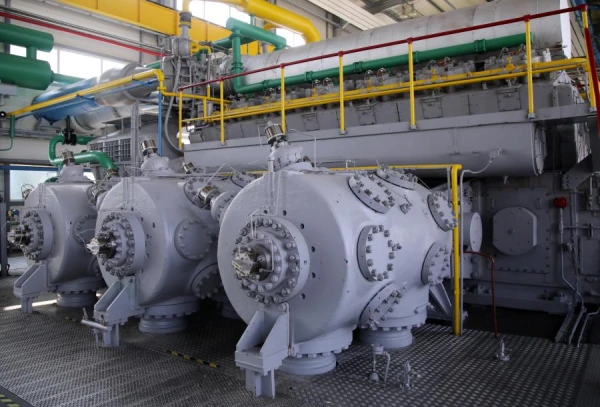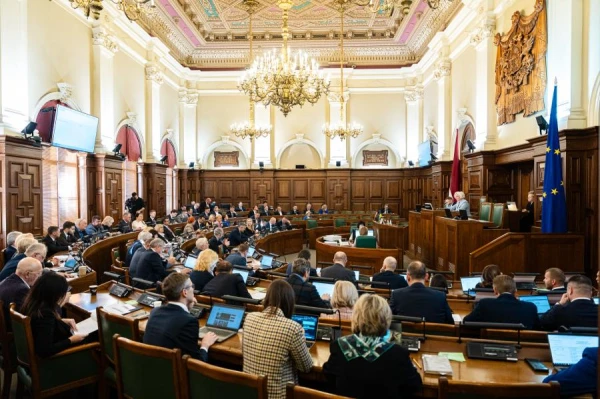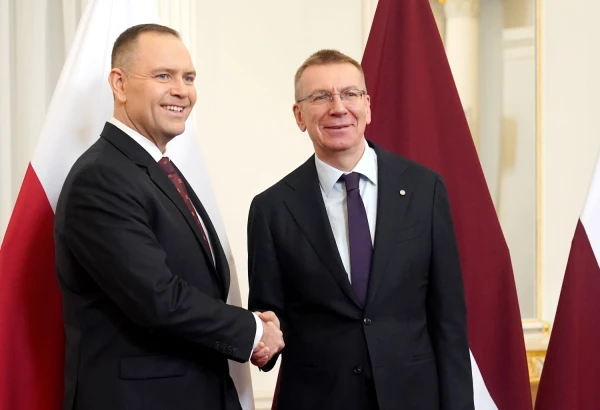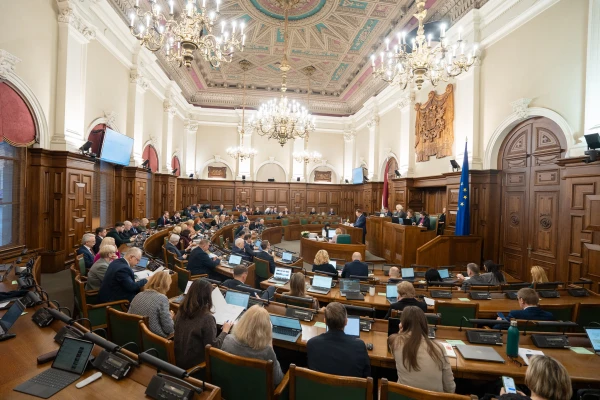
The capacity of the Inčukalns underground gas storage (UGS) significantly exceeds gas consumption in Latvia, and its current filling — about 56% of technical capacity — does not indicate increased risks of gas supply during the heating season, the Ministry of Climate and Energy (MCE) told the LETA agency.
The ministry explained that when assessing the filling levels of the Inčukalns UGS, it is necessary to consider that some of its users are foreign companies that accumulate gas in the storage for their customers or for subsequent resale in winter. Therefore, the current filling level, which is about 56% of the technical capacity, cannot be considered an indicator of possible disruptions in gas supply during the heating period.
Moreover, as noted by representatives of the MCE, in the 2025 injection season, the gas storage system operator set a higher maximum capacity for the storage than in several previous years — for example, in 2020, the technical capacity was 21.52 terawatt-hours (TWh), which is 3.3 TWh less than the current one. The maximum capacity of the storage is mainly influenced by the operational modes in previous years, as well as the schedule and progress of repair and reconstruction works in the storage and transmission system.
The natural gas injection season this year began on May 1 and is nearing completion, but the injection is still ongoing.
As of September 29, there were 14.03 TWh of natural gas in the Inčukalns UGS, which is about 80% of the planned volume. The injection season is planned to be completed upon reaching 17.6 TWh.
The ministry also explained that the volumes of natural gas injected over the past five years have been unstable. This year, the volume of injected gas has already exceeded the total figure for 2022, when 13 TWh were injected into the storage.
Despite significant fluctuations in injection volumes over the past five years, the natural gas accumulated in the UGS significantly exceeds Latvia's consumption during the heating season.
Over the past three years, gas consumption in Latvia has ranged from 6.6 to 7.8 TWh. This means that the reserves in the Inčukalns storage already fully cover the projected consumption in Latvia and provide supplies for users in neighboring countries.
The MCE also indicated that one of the reasons for the lower reserved volumes this year compared to last year may be the presence of large gas stocks from previous years. This indicates that traders' forecasts for consumption in Latvia were more optimistic than actual consumption. As a result, forecasts have been revised downward.
As noted by the ministry, there is a change in the behavior of users of the gas storage and transmission system. Thus, in the first half of 2025, the volume of gas transported through Latvia increased by 8% (to 13.9 TWh) compared to the same period last year. At the same time, gas consumption in Latvia itself decreased by 3%.
This indicates a reduction in Latvia's dependence on natural gas supplies, including due to a transition to other energy sources, such as electricity. In addition, neighboring countries, such as Estonia and Finland, actively use Latvian infrastructure.
It was previously reported that by the end of September, 13.8 TWh of gas had been injected into the Inčukalns UGS — 25% less than in mid-September last year (18.6 TWh).
According to information on the Conexus website, as of the end of the day on September 23, 2025, 13.8 TWh of natural gas had been injected into the Inčukalns UGS, which is 54.4% of the storage capacity.
For comparison: in mid-September last year, 18.6 TWh (75%) were injected into the storage, while in 2023 — 19.8 TWh (80%).
Conexus's turnover last year amounted to 94.77 million euros, with a profit of 38.4 million euros.
Conexus is the sole operator of the natural gas transportation and storage system in Latvia. The company is responsible for the maintenance and development of the storage infrastructure, controls its stability, and is responsible for reserving and selling capacities.
The largest shareholder of Conexus is the state enterprise "Augstsprieguma tīkls" (68.46%), 29.06% of the shares belong to the fund "MM Infrastructure Investments Europe Limited," managed by the Japanese company Marubeni, and 2.48% to other shareholders.















Leave a comment